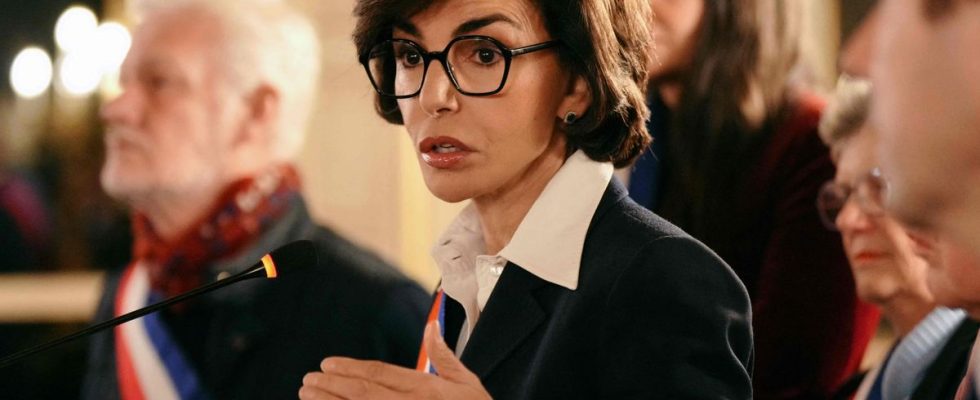Rachida Dati wanted on Tuesday to once again clarify things about her entry into government. First “taken aback” by Emmanuel Macron’s proposal, she “did not hesitate” to accept the post of Culture, she said during her greetings to the residents of the 7th arrondissement of Paris.
The president “did me the honor of offering me this ministry. It’s true that at the beginning, I was taken aback,” she admitted in a packed town hall, on its ground floor, for the occasion. But he “explained to me what he expected of me, I did not hesitate,” added Nicolas Sarkozy’s former Minister of Justice.
“I am your mayor and I want to remain so”
“When you have an opportunity to do things, on things that interest you, on which you say to yourself “I will be able to change and improve things”, you should not hesitate,” explained Rachida Dati. “Yes, I am a right-wing woman, but I am not sectarian,” she added. “I don’t make it a matter of political parties.”
“I am your mayor and I want to remain so,” also indicated Rachida Dati, mayor since 2008 of this upscale district of the capital. “You have always been my priority, that will not change,” she assured those present, including many elderly people.
The one who is still the president of the main opposition group to the mayor PS Anne Hidalgo, however, did not mention the prospect of the municipal elections of 2026. After her exclusion from the Republicans, announced in the wake of her appointment, the LR group and related members of the Council of Paris must also decide in the coming days whether or not to remain at its head.
Macron’s explanations
After her vows, Rachida Dati went to the Elysée for Emmanuel Macron’s press conference, who was questioned about his appointment and a possible “deal” between them around 2026. “We did not speak of Paris”, assured the Head of State, praising his new minister for “her energy, her talent, her freedom” which “cannot be reduced to political affiliation”. According to him, these qualities will be “useful to culture”, to “open doors” and “put an end to this France of “it’s not made for me””.
As for his indictment for corruption in the investigation into a subsidiary of Renault-Nissan, “there is no rule which means that an indicted minister should leave” the government, argued the president. “Otherwise in a way, I would recognize the presumption of innocence less to a political leader than to another,” he added, evoking a “form of common sense”.
If “old jurisprudence” dictated that an indicted minister had to resign, it was because there was “one of his colleagues who could give individual instructions to the prosecution,” he explained. But “for ten years now in our country, there has been no individual investigation of cases,” he argued.

